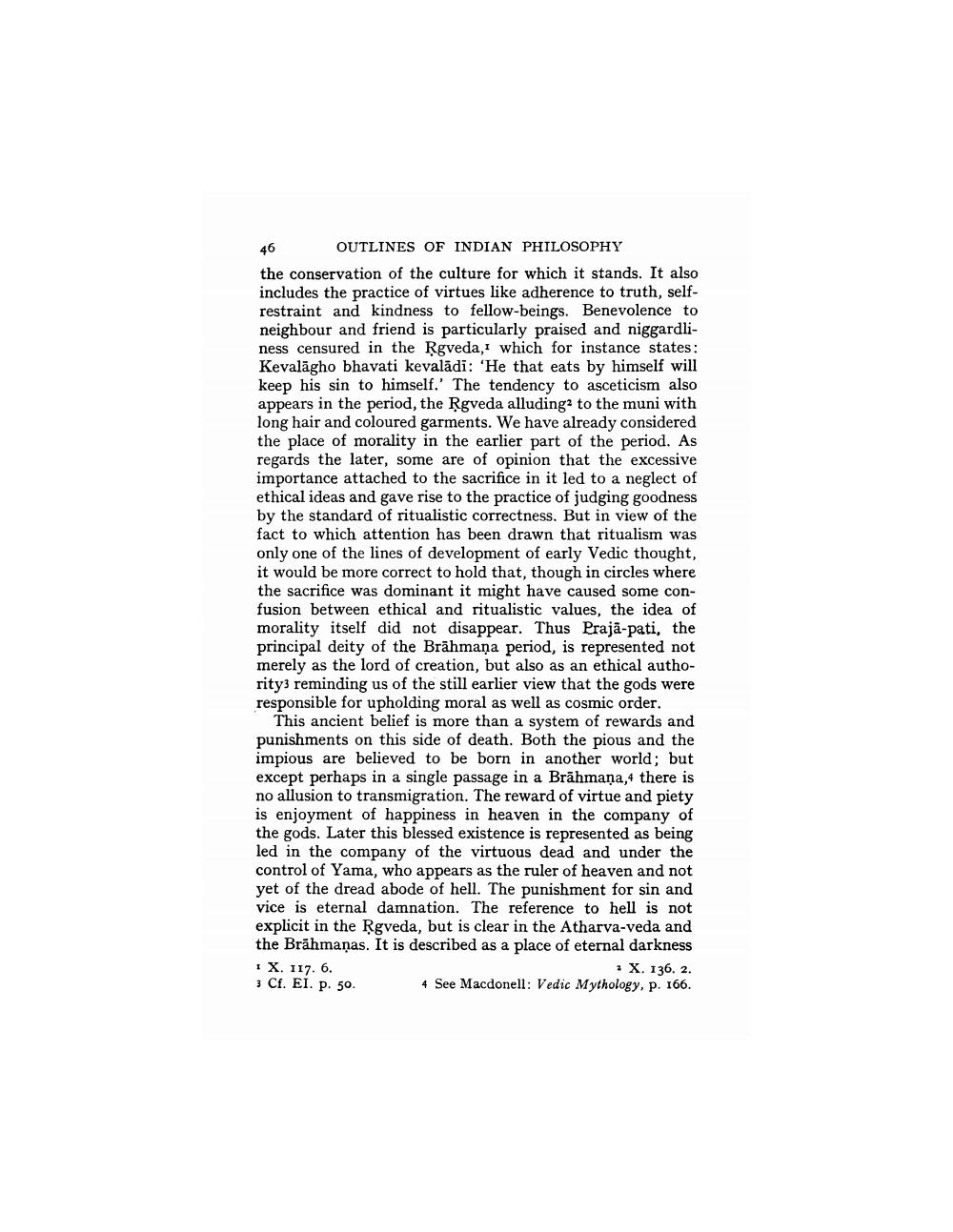________________
46 OUTLINES OF INDIAN PHILOSOPHY the conservation of the culture for which it stands. It also includes the practice of virtues like adherence to truth, selfrestraint and kindness to fellow-beings. Benevolence to neighbour and friend is particularly praised and niggardliness censured in the Rgveda, which for instance states: Kevalāgho bhavati kevalādi: 'He that eats by himself will keep his sin to himself.' The tendency to asceticism also appears in the period, the Rgveda alluding to the muni with long hair and coloured garments. We have already considered the place of morality in the earlier part of the period. As regards the later, some are of opinion that the excessive importance attached to the sacrifice in it led to a neglect of ethical ideas and gave rise to the practice of judging goodness by the standard of ritualistic correctness. But in view of the fact to which attention has been drawn that ritualism was only one of the lines of development of early Vedic thought, it would be more correct to hold that, though in circles where the sacrifice was dominant it might have caused some confusion between ethical and ritualistic values, the idea of morality itself did not disappear. Thus Praja-pati, the principal deity of the Brāhmaṇa period, is represented not merely as the lord of creation, but also as an ethical authority3 reminding us of the still earlier view that the gods were responsible for upholding moral as well as cosmic order.
This ancient belief is more than a system of rewards and punishments on this side of death. Both the pious and the impious are believed to be born in another world; but except perhaps in a single passage in a Brāhmaṇa, there is no allusion to transmigration. The reward of virtue and piety is enjoyment of happiness in heaven in the company of the gods. Later this blessed existence is represented as being led in the company of the virtuous dead and under the control of Yama, who appears as the ruler of heaven and not yet of the dread abode of hell. The punishment for sin and vice is eternal damnation. The reference to hell is not explicit in the Rgveda, but is clear in the Atharva-veda and the Brāhmaṇas. It is described as a place of eternal darkness I X. 117. 6.
X. 136. 2. 3 Cf. EI. p. 50.
4 See Macdonell: Vedic Mythology, p. 166.




